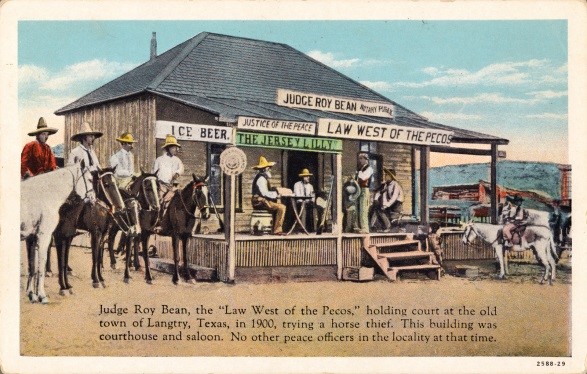About Small Civil Claims in Texas Justice Courts
Effective September 1, 2020, Texas law will change to allow parties to bring civil actions for up to $20,000 in our justice of the peace courts, which are sometimes referred to as Justice Courts, JP courts, or “small claims courts.” Prior to that, the dollar value limit for cases in a Justice Court was $10,000, and it had not changed since 2007. Television shows like “The People’s Court” and “Judge Judy” have popularized the small claims court process which is similar to that of our Justice Court in Texas. Generally, these courts dispense “rough justice” resolving a wide range of civil court disputes quickly, efficiently, and inexpensively.
Do You Need an Attorney for Small Civil Claims in Texas?
A distinct advantage of filing a small claim in a Justice Court is you do not need an attorney. Texas Justice Court provides simple forms which an average person can fill out describing the nature of the dispute in common, everyday language. The civil procedure and proceeding are less formal, and most Justice Courts provide pamphlets explaining the small claims process in simple, easily understandable terms. The filing fees and court costs are lower in Justice Court, and the clerks will handle the formal aspect of initially serving the other party with your lawsuit. There are rarely pretrial proceedings, and your small claims case usually will proceed to trial within a few months.
Do Business Owners Need an Attorney for Small Civil Claims in Texas?
Even business entities are not required to have an attorney in Texas Justice Court. Some small business owners are surprised when they learn that the law requires them to hire an attorney for a civil procedure in county or district court. In small claims court, a business entity can even appear through a representative who is not a licensed attorney. This representative should bring evidence that he or she is authorized to act on the entity’s behalf at the Justice Court proceeding.
How to Sue Someone in Small Claims Court
To begin a case in small claims court, you must personally go to the civil clerk of the correct Justice Court and complete a form. That form will require you to provide your complete name and address, the other party’s or parties’ complete name(s) and address(es), the amount of your small claim, and the basis of your claim stated plainly and without technicalities, and the date your claim arose. You will have to swear under oath that the contents of the form are true. You will have to pay a small filing fee and the cost to have the party(ies) you are suing served with your lawsuit.
It is extremely important that you provide the correct name and address of each individual and/or entity you are suing in Justice Court. If you are suing a business like a corporation or limited liability company, you must state its exact name and the name of the officer, manager, or registered agent of that business to be served. This information can be obtained from the Texas Secretary of State by calling 1-800-252-1386 or online through its website. If the business is a partnership, the partnership itself should be named by its correct legal name and each of its general partners should be named individually. Be very careful to name the correct entity as businesses often have very similar names.
Which is the “Correct” JP Court?
In general, the correct Justice Court is the one located in the county and precinct where one or more of the opposing parties resides. Some counties only have a single JP court. More populous urban counties are typically divided into multiple precincts. For example, Dallas County has five precincts. County websites typically provide a map showing the boundaries of its precincts.
A suit against a private corporation, association, or joint-stock company may be brought in the county and precinct in which (1) all or part of the cause of action arose; (2) it has an agency or representative; or (3) where its principal office is located.
There are two exceptions to the general rule. An eviction suit must be brought in the county or precinct where the rented property is located. A suit by a creditor on a contract for goods, services, or loans intended primarily for personal, family, household, or agricultural use must be brought either in the county and precinct in which the contract was signed or in which the defendant resides.
What Relief Can You Get in Justice Court?
With a few exceptions, a Justice Court can only award you a sum of money if you are successful. It typically cannot order the other party to do something. So, for example, if an automobile mechanic damaged your car while performing a repair, the JP court can award you the sum of money necessary to repair the damage, but it cannot order the mechanic to fix your car. So you will need evidence of the cost of repair, like an estimate when you file suit.
There are two common exceptions to that rule. In an eviction case, a JP court can award a landlord a writ of possession which directs the local constable to physically remove a tenant from the landlord’s premises. In a suit to recover personal property, a JP court can order one party to turn over the item in dispute.
Types of Disputes to Take to Small Claims Court
Texas Justice Courts have experience resolving a wide range of disputes, including:
- Consumer complaints
- Non-payment for goods delivered or services rendered
- Non-conforming goods or work (i.e. you did not get what you ordered)
- Dishonored checks
- Improper or incomplete motor vehicle or appliance repairs
- Motor vehicle collisions (typically with damage to vehicles only)
- Disagreements between co-tenants
- Disputes involving bailments
- Damages to personal property
- Civil theft liability
- Landlord’s failure to repair
- Landlord’s failure to refund security deposit
- Residential evictions
- Other residential landlord-tenant disputes
Our firm does not handle many litigation matters in Justice Court. Usually, the additional cost of an attorney is unnecessary in small claims courts.






